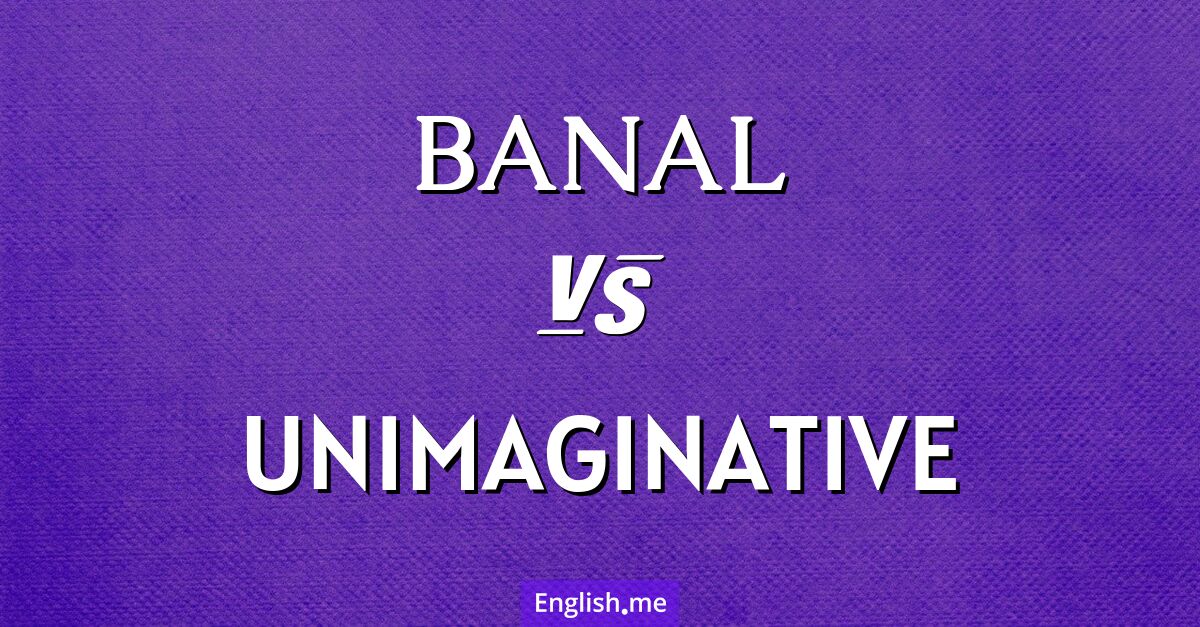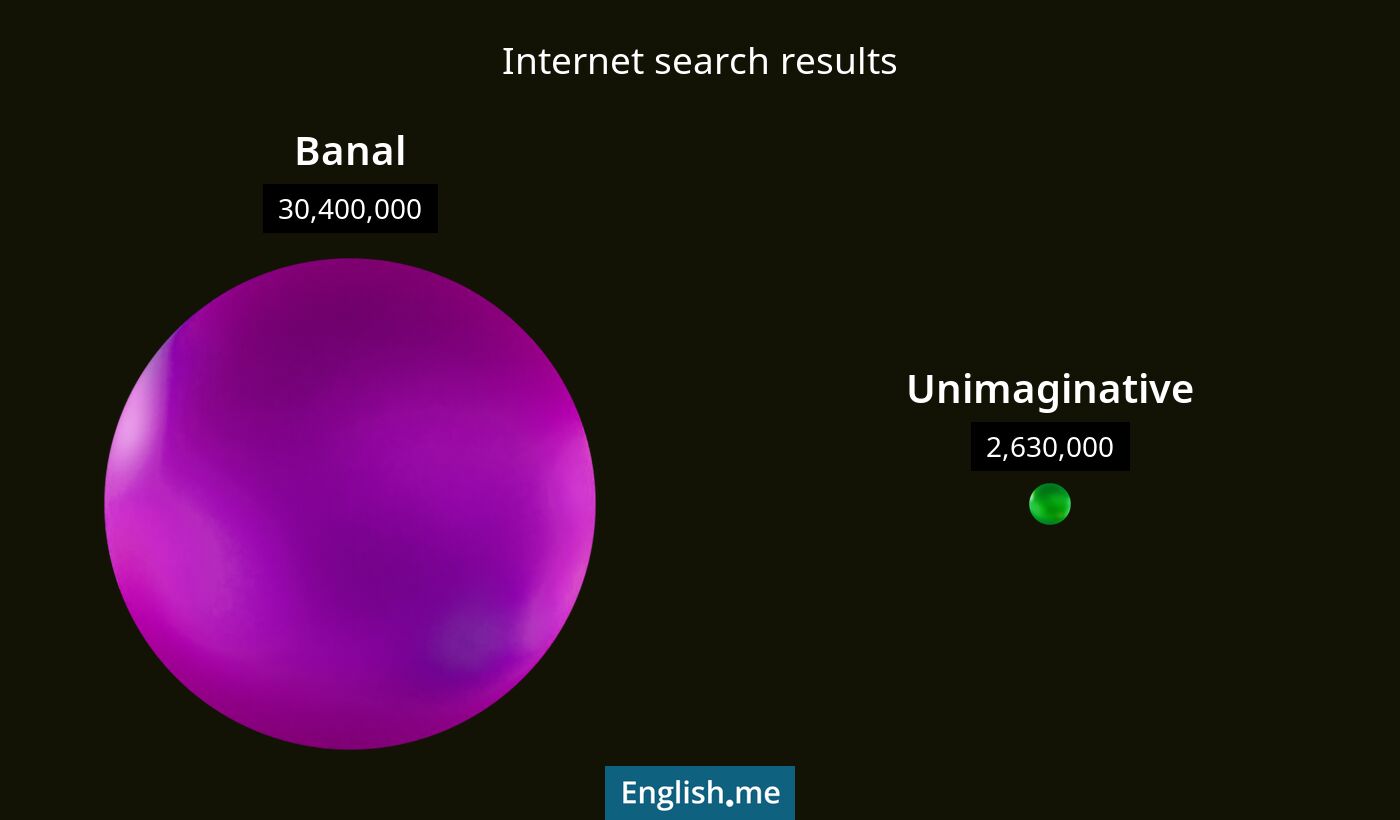Beyond boring: exploring "banal" vs. "unimaginative"
Reviewed and edited by  Lloyd Cooper 10/10/2024, 06:21
Lloyd Cooper 10/10/2024, 06:21
English.me team member

 What is similar?
What is similar?
Both words describe something that lacks originality, creativity, or novelty. They are often used to refer to ideas, works, or behaviors that are dull or commonplace.
 What is different?
What is different?
The word "banal" specifically refers to something that is so lacking in originality as to be obvious and boring, often implying that it is overly commonplace or trite. "Unimaginative", on the other hand, emphasizes a lack of creativity or invention and is often used to describe someone who cannot think beyond the ordinary or expected. While "banal" often conveys a stronger sense of something being tedious due to overuse, "unimaginative" focuses more on the inability to think creatively.
 Which one is more common?
Which one is more common?

 Examples of usage
Examples of usage
Banal- The movie was criticized for its banal plot and cliched characters.
- His speech was filled with banal phrases that failed to inspire the audience.
- The interior design was functional yet unimaginative.
- Her unimaginative approach to the project did not offer any new insights.

 English
English español
español française
française italiano
italiano deutsche
deutsche 日本語
日本語 polski
polski česky
česky svenska
svenska Türkçe
Türkçe Nederlands
Nederlands